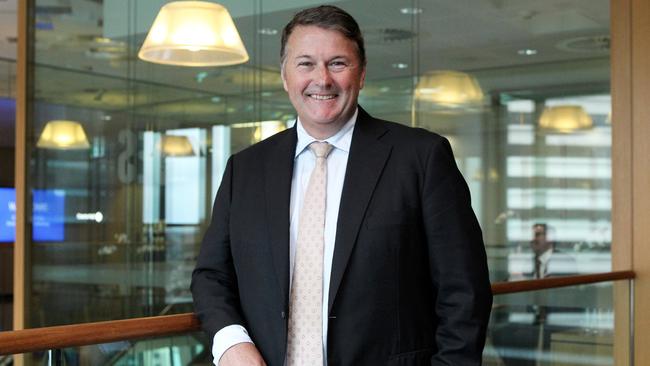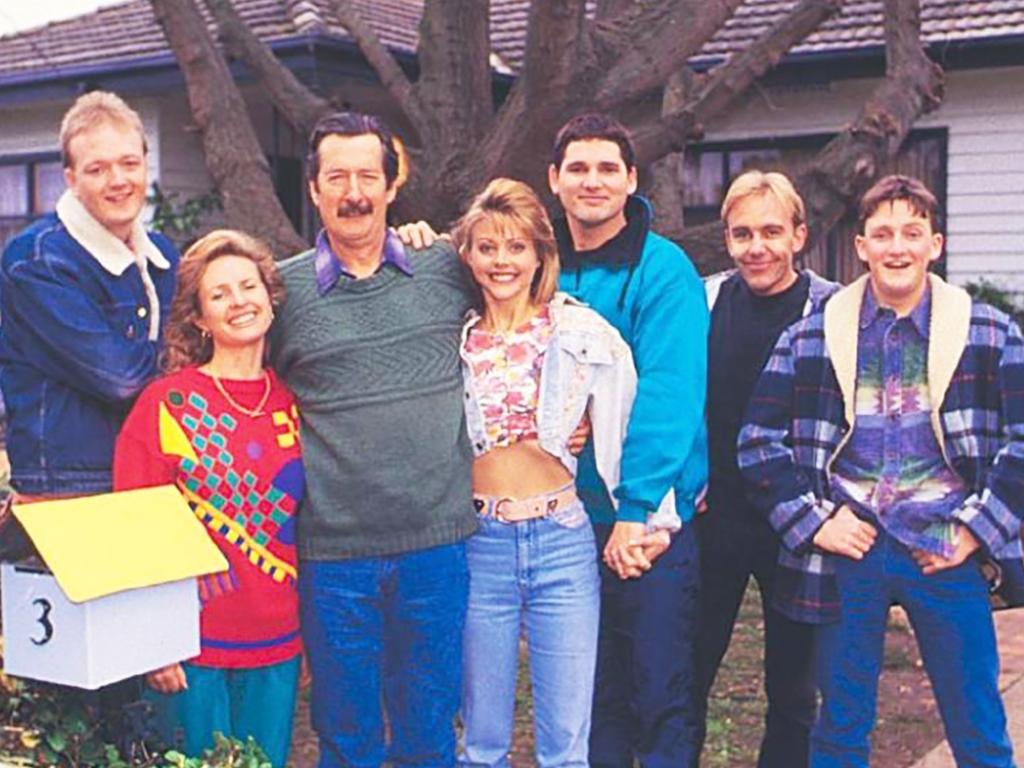David Harrison warns: don’t kill the property golden goose
The property industry is bearing a huge burden in lockdowns and governments have been slow to recognise the sacrifices it has made.

When it comes to getting a fair hearing in the corridors of power the property industry would have few advocates as staunch as David Harrison.
He has built the Charter Hall Group into a sprawling $52bn real estate empire with holdings around the country giving him insights into just about every business sector in the nation.
The veteran chief executive, elected as national president of the Property Council of Australia in March, took over from JLL Australia and New Zealand chief executive Stephen Conry after his two-year term, and is keen to set an agenda as the country emerges from the pandemic.
Mr Harrison is a major force in the nation’s office and logistics markets and has taken his company into new areas including long-leased assets, convenience retail and education precincts.
His goal in heading the Property Council is to ensure the sector gets fair and equitable treatment – especially as it has again shouldered the burden of providing tenant relief as the gateway cities of Sydney and Melbourne have both been locked down because of coronavirus outbreaks.
This alone means it will play a key role in helping businesses during the pandemic but the initial government reach for lockdowns show just how great the challenges will be.
Commercial landlords were uniquely hit by the national mandatory code of conduct for dealing with small to medium size businesses as Covid-19 broke out.
But landlords held the line against the threat of fundamentally weakening the standing of leases and the ability of tenants to break them despite pressure from high profile retailers, including Solomon Lew’s Premier Investments.
Mr Harrison praised the federal government’s JobKeeper package and the stimulus provided by HomeBuilder as helping to kickstart the economy. He says they were much more effective than pink bats and other post-GFC programs.
But he is realistic about the heavy burden that the property industry is being asked to shoulder.
“It’s just too easy, particularly for state governments, just to keep taxing the life out of the property industry in the form of stamp duty,” he said.
NSW treasurer Dominic Perrottet has led the charge at a state level on the removal of stamp duty on property purchases. But Mr Harrison warns that the burden is still high across many states.
Developers and property owners in Victoria were hit by $2.4bn in property tax hikes in the Victorian budget, endangering the sector’s fragile recovery. Mr Harrison is staunchly opposed to increasing state taxes at a time when the economy should be stimulated.
“Victoria was just a complete own goal in terms of kicking your own state in the guts when we’re trying to get out a recovery,” Mr Harrison said.
His concerns are broader than the impact of the residential sector, where construction has been slipping. He wants recognition of the impacts of government actions on newer areas.
Charter Hall draws billions of capital from around the world to invest in local property and he says that as the world has diversified away from the original core sectors of shopping centres and office into logistics and newer areas, these should be highlighted.
“Many pension funds and super funds are advocating for the highest exposure in their portfolios being industrial and office, and then shopping centres,” he said.
“You’ve got a whole range of emerging alternative sectors from retirement to manufactured housing. Build to rent is getting a lot of airplay but it’s still in its infancy,” he said.

Developers in the area have lobbied for reduced withholding taxes to get foreign capital investing in the sector. But Mr Harrison would like to see backers closer to home step up.
“The domestic super funds should be invested in the sector, because they don’t have the tax leakage, more so than foreign investors,” he said.
But he still worries about rising imposts on the property sector.
“I’m not sure we’re ever going to get to this nirvana,” he said.
But Mr Harrison says it’s critical “trying to get governments to understand that you just can’t keep going back to the well and taxing the property sector”.
He cites not only stamp duty and land tax but says that hitting up foreign investors with double land tax rates is even worse.
“We need international inflows, as well as domestic inflows, so the governments right around the country, particularly state governments, have got to be very careful not to kill the golden goose,” he said.
“They’re very heavily reliant on taxes from the property sector. My sense is there’s almost a bipartisan view that you can just keep taxing the property sector, but it’ll come home to roost,” he said.
It could hit when governments need it most.
“Those governments will go through a period where they create a disincentive for investment, and it will slow down their revenue pools and ultimately that’s going to put them in a more dire position than they are now with big deficits,” he said.
The PCA is also pushing for underlying issues to be addressed with Mr Harrison saying it is trying to prosecute the case around housing supply.
“When there’s a shortage of housing, trying to get politicians to understand that if you don’t do something about it, you’ll end up creating an imbalance of demand and supply and pricing gets out of control,” he said.
At these times the Reserve Bank gets more concerned about residential prices, invoking the threat of macro-prudential measures. Mr Harrison says that half the drivers of residential property prices relate to lack of supply.
“It’s not just excess demand driven by low interest rates, it’s actually a lack of supply to satisfy the demand for housing, both single dwellings and apartments,” he said.
“The biggest issue we’ve had as an industry is state governments have been so slow in rezoning land and it’s created a problem with supply of new single dwelling housing, particularly, but also medium density,” he added.
Mr Harrison is throwing down the gauntlet to reformist governments as the stamp duty burden has lifted by about 40 per cent. “Combined with the growth in asset values that is creating a huge revenue stream to state governments,” he said.
But he is seeing signs of change – and smaller states could lead the way.
“Hats off to South Australia for abolishing stamp duty on commercial transactions which stimulated their economy,” he said.
The PCA president is already using his pulpit to extol the virtues of city economies that have come under threat from naysayers who would prefer to stay at home.
“Every country in the world has set up a transport system that is fundamentally there to drive people in and out of the city,” Mr Harrison said. “You’ve still got a spinal network that is sending people into the cities.”
He dismisses the idea that cities will explode into multiple suburban nodes due to the difficulty of using public transport outside of the major CBDs and restrictive carparking ratios.
“I think Covid has also proven that if you can’t have cities as a place for people to work and have a good time … you’re not going to create the sort of GDP growth that Australia’s states and territories and the national economy has benefited from,” he said.
Mr Harrison says that cities are important and that revitalising some traditional commercial nodes into centres with multiple services like health and education is critical.
“If ever there was going to be a focus on life sciences, it’s going to be now post Covid,” he said. ”I think that’s going to be more prevalent.”








To join the conversation, please log in. Don't have an account? Register
Join the conversation, you are commenting as Logout